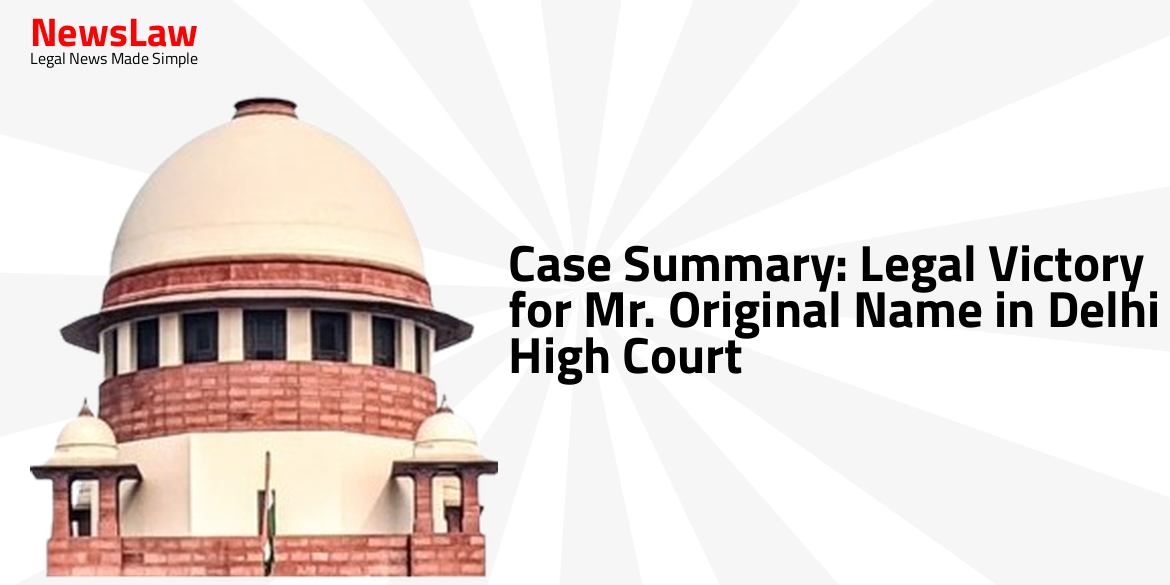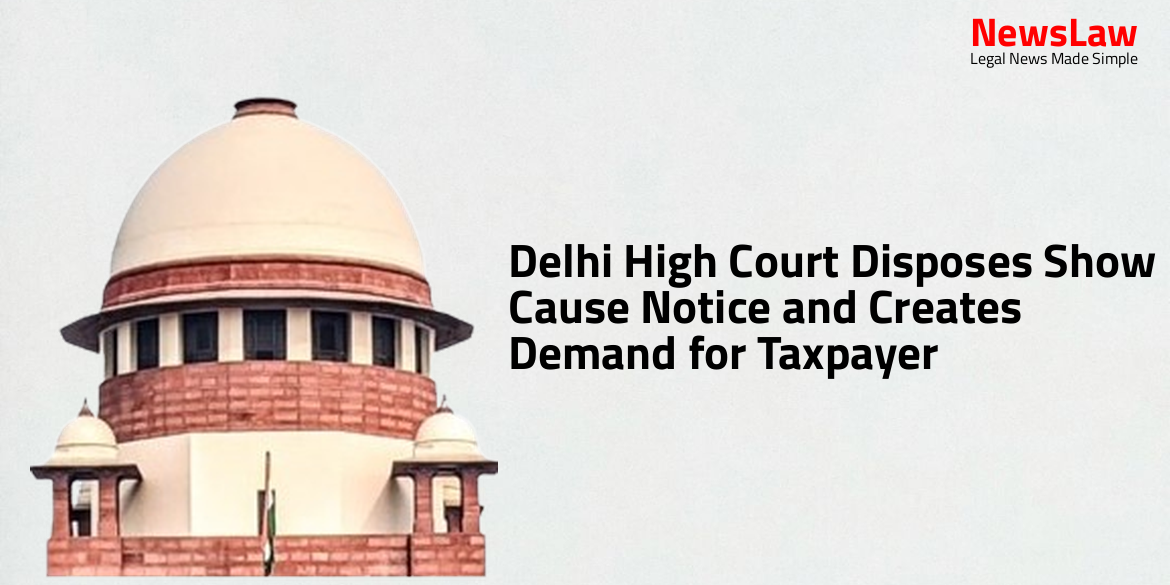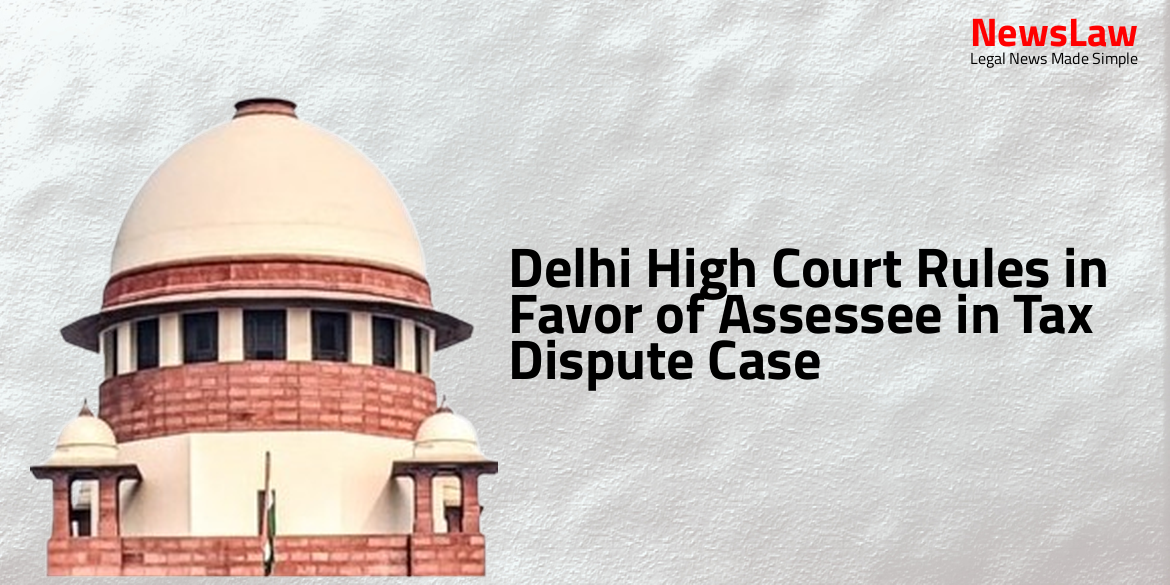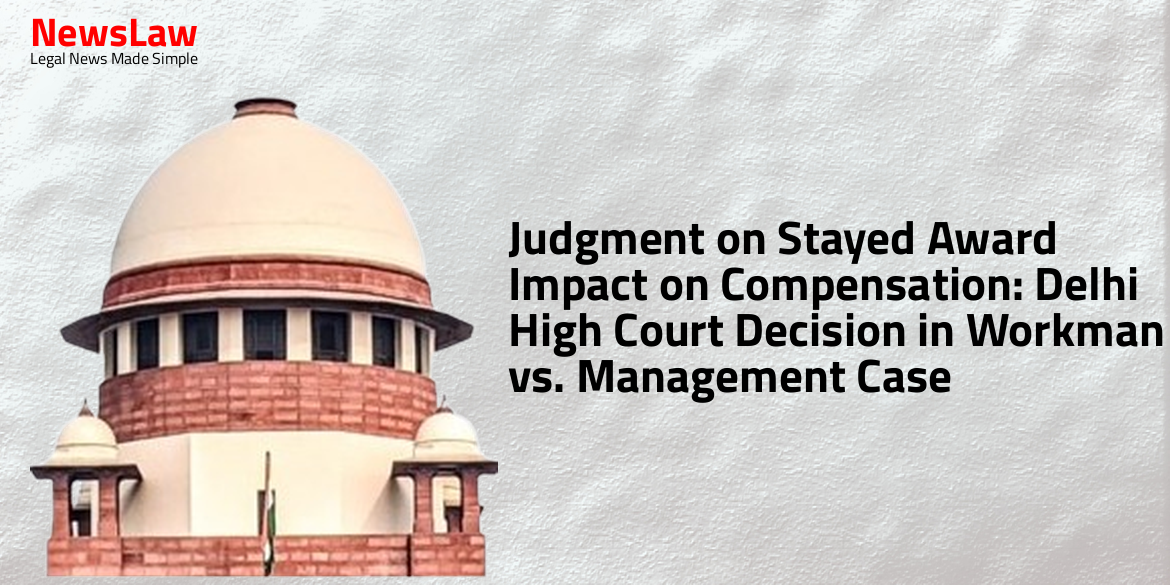In a recent landmark judgment by the Delhi High Court, Mr. Original Name has secured a crucial legal victory. The Court’s decision to grant bail marks a turning point in the ongoing legal battle. This ruling brings hope and relief to Mr. Original Name and sets a precedent for similar cases in the future. Stay informed about this important development in the realm of legal justice.
Facts
- The Learned Trial Court has considered the arguments presented by the accused, Mr. Original Name, for his release on bail under Section 436-A Cr.P.C.
- It has been noted that the nature and gravity of the offence and the role attributed to Mr. Original Name are substantial factors in the decision.
- The Trial Court has observed that the grounds presented by Mr. Original Name for bail do not sufficiently outweigh the considerations of the offence and his involvement.
- Hence, the plea for release on bail under Section 436-A Cr.P.C. by Mr. Original Name has been denied by the Trial Court.
- Charges were framed on 15.03.2022 and trial proceeded on a day-to-day basis.
- Appellant was arrested on 28.01.2020 for offences under Sections 124A/153A/153B/505(2) IPC and Section 13 of UAPA.
- Appellant continues to be in custody throughout the trial proceedings.
Arguments
- In the arguments, Mr. Rajat Nair, SPP for the State contended that bail may be refused if the delay was caused by the accused.
- It was argued that the accused was responsible for the delay as he requested for the trial to be stayed in 2022.
Analysis
- Offence of Section 124-A IPC excluded from consideration based on directions from the Supreme Court
- Bail under Section 436-A Cr.P.C. not automatic, discretion vested in Court
- Court may detain person further based on reasons provided in proviso
- Period of detention due to delay caused by accused also excluded
- Reference made to Ajay Ajit Peter Kerkar Vs. Directorate of Enforcement & Anr.
- Bail not to be denied based solely on seriousness of allegations
- Merely attempting to avail legal remedies does not disentitle accused from seeking release
- No justifiable reason found for the Court to deny relief in the case at hand
- Section 436-A Cr.P.C. introduced to prevent undertrial prisoners from being detained beyond half of the maximum sentence.
- Trial Court rejected the State’s argument that subsequent sentences should be considered under section 31 Cr.P.C. and punishments run consecutively.
- Delay caused by accused can be excluded in computing detention period for bail under Section 436-A Cr.P.C.
- State and Central Governments urged to refrain from invoking Section 124-A IPC until the Supreme Court decision is reached.
- Accused cannot be blamed for delay if availing legal remedy in accordance with judicial pronouncements.
- Trial Court denied bail considering the seriousness of allegations against the appellant related to riots and public harm.
- Appellant had served more than half of the maximum sentence and sought bail under Section 436-A Cr.P.C.
- Detainees cannot be kept in detention beyond the maximum period of imprisonment allowed for the offense they are accused of
- This applies during the investigation, inquiry, or trial period
- This is a safeguard to prevent unjustified detention of individuals
- The Hon’ble Supreme Court observed that there was no reason or occasion for the accused to cause delay in the trial.
- The charges had not even been framed against the accused.
- No adverse circumstances were found against the accused.
- The benefit under Section 436-A of the Cr.P.C. was extended to the accused.
- There was nothing on record that could disentitle the accused from seeking relief under Section 436-A Cr.P.C.
Decision
- The appeal has been allowed
- The appellant is directed to be released on bail
- Terms and conditions of the bail will be imposed by the Trial Court
Case Title: SHARJEEL IMAM Vs. STATE OF NCT DELHI & ANR. (2024:DHC:4570-DB)
Case Number: CRL.A.-215/2024



